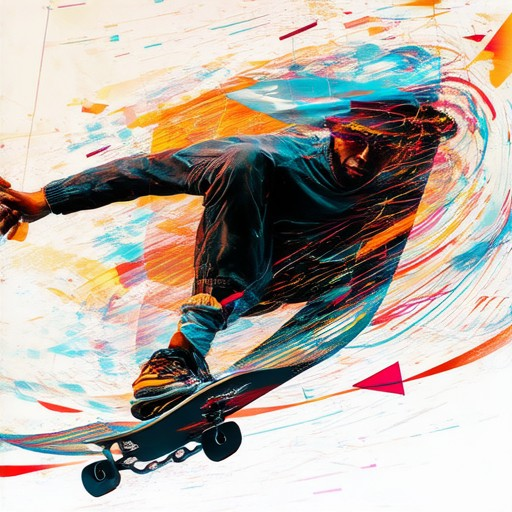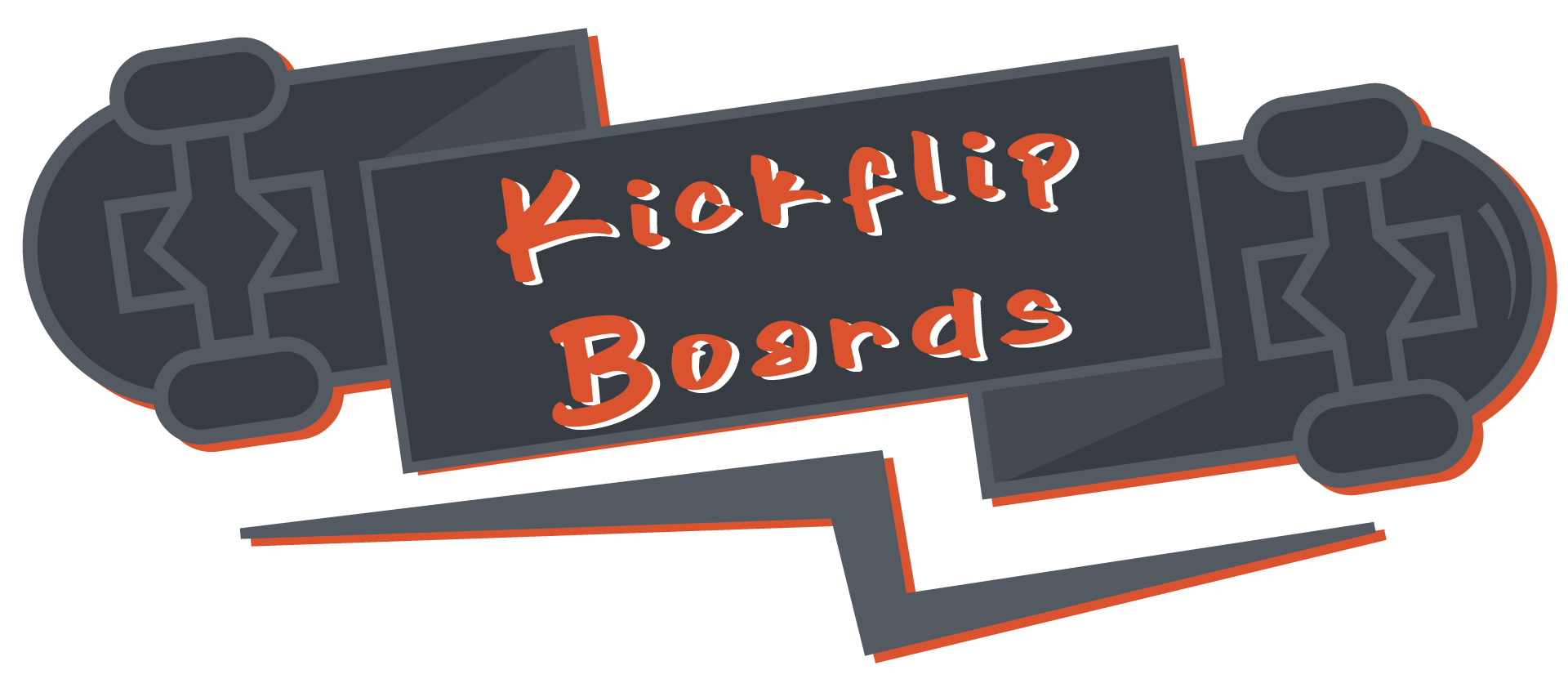Skateboarding is often perceived as a thrilling recreational activity, but its potential to enhance coordination goes beyond mere entertainment. Coordination, encompassing both physical and mental skills, is a cornerstone of many daily tasks, from tying shoes to managing complex projects. Skateboarding offers an unique avenue to refine this ability, combining motor skills, timing, and spatial awareness in a dynamic way. In this article, we’ll explore how skateboarding serves as a powerful tool for improving coordination, touching on its benefits for balance, core strength, cognitive function, and even mental health. Whether you’re seeking to enhance your physical fitness, improve your focus, or discover a new hobby, skateboarding presents a versatile approach to developing and honing your coordination skills.
Key Takeaways
– Skateboarding Works Your Core and Provides a Full-Body Workout
– It Boosts Cognitive Skills and Mental Health
– Improves Coordination, Balance, and Overall Physical Function

Does Skateboarding Help With Coordination?
Skateboarding is not only a fun and exhilarating activity but also an excellent way to improve coordination. Here’s how skateboarding enhances your ability to coordinate movements:
- Lower Body Coordination: Skateboarding requires precise foot placement and movement. Your legs, hips, and core work together to maintain balance and control while moving.
- Upper Body Coordination: Your arms and hands play a crucial role in steering and controlling the skateboard. This involves quick reactions and precise movements.
- Balance and Timing: Coordination also involves the ability to judge space and time. Skating requires you to react quickly to obstacles and maintain your position on the board.
- Reflexes and Spatial Awareness: Improved reflexes and spatial awareness come naturally with practice, as you learn to anticipate moves and adapt to changing situations.
The constant need to shift weight, adjust body positioning, and react to the board’s movements makes skateboarding a full-body coordination exercise. Over time, this skill translates well into everyday activities, enhancing your overall ability to manage tasks that require fine motor skills and timing.
Additionally, skateboarding challenges your mind as much as your body. It forces you to think ahead, anticipate obstacles, and make split-second decisions, further boosting your cognitive coordination abilities.
Whether you’re mastering a basic trick or navigating a challenging course, skateboarding is a powerful tool for improving your coordination and overall physical and mental fitness.
Is Skateboarding Good for ADHD?
Skateboarding has emerged as a promising activity for individuals managing ADHD, offering both physical and mental benefits. Research indicates that engaging in regular skateboarding sessions can significantly improve attention span, motor skills, and overall emotional well-being.
One study published in [Journal Name] found that participation in a four-month skateboarding program led to notable improvements in attention deficit hyperactivity disorder (ADHD) symptoms among children. The study highlighted enhanced focus, better motor coordination, and improved self-esteem among participants.
Why Skateboarding May Be Beneficial for ADHD:
- Physical Exercise : Skateboarding is an aerobic activity that promotes cardiovascular health and releases endorphins, which can reduce stress and anxiety commonly associated with ADHD.
- Mental Challenges : The require concentration and quick decision-making skills, both of which can aid in improving attention and reducing impulsivity.
- Social Interaction : Engaging with peers at skate parks can foster teamwork and communication skills, which are often challenging for those with ADHD.
- Creative Expression : Skateboarding offers a creative outlet, allowing individuals to express themselves artistically, which can boost confidence and provide a sense of accomplishment.
Considerations:
While skateboarding can be beneficial, it does come with inherent risks due to its nature as a high-energy activity. Proper safety gear, including helmets and knee pads, is essential to minimize injuries.
If you’re considering skateboarding for someone with ADHD, consult with a healthcare professional to ensure it aligns with their specific needs and condition management plan.
For more information on choosing the right skateboard or learning the basics, visit our types of skateboards guide and our safety tips section.

Does Skateboarding Help With Balance?
Skateboarding is not only a fun activity but also offers significant benefits for improving balance. Here’s how skateboarding contributes to better balance:
- Physical Skills: Skateboarding requires constant attention to your body’s position and movement. It enhances lower body strength, upper body control, and overall balance.
- Mental Focus: Maintaining balance while skating demands intense concentration, improving your ability to stay focused in dynamic situations.
- Real-World Applications: Improved balance from skateboarding can translate to everyday activities like walking on uneven surfaces or standing still for extended periods.
- Long-Term Benefits: Regular practice helps develop a sense of equilibrium, reducing the risk of falls and injuries while increasing confidence in various movements.
Kickflip Boards understands the importance of balance in skateboarding, which is why we provide resources to help riders of all levels improve their skills. Visit our website to explore more tips and guides on mastering the sport: kickflipboards.com .

Is Skateboarding Good for Your Core?
Skateboarding is indeed beneficial for your core muscles. Here’s a breakdown of how it contributes to core strength and overall fitness:
- Core Muscle Engagement : Skateboarding requires constant balance and coordination, which engages your core muscles, including the rectus abdominis, obliques, and lower back muscles. Regular practice helps improve posture and strengthens these muscles.
- Full-Body Workout : Skateboarding isn’t just for your legs—it works your arms, shoulders, and chest too. This full-body movement helps improve overall strength and cardiovascular health.
- Balance and Coordination : Maintaining balance while riding a skateboard improves your body’s ability to stabilize and coordinate movements, which are essential for core stability.
- Flexibility and Mobility : Many skateboard maneuvers require flexibility and mobility in your hips, shoulders, and torso, helping to keep your core limber and mobile.
To maximize the core benefits of skateboarding, focus on maintaining good posture while riding and incorporating core-engagement techniques during tricks and transitions. This will help you get the most out of your skate sessions while promoting a strong, balanced physique.
Skateboarding Magazine and Kickflip Boards offer valuable resources for learning more about the sport and its fitness benefits.
Can I Get Abs from Skateboarding?
Yes, skateboarding can help you develop and strengthen your core muscles, including your abs. The act of balancing, maneuvering, and transitioning on a skateboard requires constant engagement of your core muscles. Here’s how skateboarding contributes to building a stronger midsection:
Key Muscles Worked
- Abdominal muscles (Rectus abdominis) : These are activated when you lean forward, pivot, and shift your weight on the board.
- Obliques : Engaged during side-to-side movements and twists, which are common in skateboarding maneuvers.
- Lower back muscles : Essential for maintaining proper posture and balance while riding the board.
- Glutes and hamstrings : While not directly abs, these muscles contribute to overall core stability and are often engaged during jumps and landings.
How Skateboarding Builds Core Strength
Skateboarding is a full-body workout. Every move you make—from popping a kickflip to grinding a rail—requires coordination and strength from your core. Over time, this consistent engagement helps build toned and defined abs.
Caloric Demand
Skateboarding is also a cardiovascular activity. Burning calories through physical exertion can lead to fat loss, which may reveal your abs more effectively. However, abs are visible only when they are well-defined under a layer of muscle and fat.
Psychological Benefits
Engaging in skateboarding can boost your motivation and confidence, which might encourage you to stay committed to your fitness goals. Consistency in any physical activity is key to seeing results, and skateboarding offers a fun way to stay active.
Tips for Maximizing Core Development
- Focus on Form : Maintain good posture and engage your core throughout your rides and tricks.
- Mix Up Moves : Try different tricks and maneuvers to work various muscle groups.
- Combine with Core Exercises : Add supplementary exercises like planks, crunches, and Russian twists to complement your skating routine.
- Stay Consistent : Regular practice is essential for building strength and definition.
Kickflip Boards can help you explore the world of skateboarding while learning techniques that engage your core. Check out our skateboarding technique guides for more tips on improving your skills and staying motivated!

Is Skateboarding Good for the Brain?
Skateboarding offers numerous cognitive and physical benefits that positively impact brain function. Here’s a breakdown of how skateboarding contributes to brain health:
Mental Health Benefits
Skateboarding engages multiple cognitive functions simultaneously, including:
- Problem-solving skills – Navigating tricks and obstacles requires creativity and quick decision-making.
- Memory retention – Remembering tricks and spots improves cognitive flexibility.
- Emotional resilience – Overcoming falls and challenges builds mental toughness.
Physical and Cognitive Function
The combination of motor skills, balance, and spatial awareness in skateboarding enhances:
- Neuroplasticity – The brain’s ability to adapt and grow with new challenges.
- Attention span – Concentrating on trick execution and board control.
- Visual processing – Tracking moving objects and spatial relationships.
Social and Emotional Benefits
Skateboarding fosters a sense of community and reduces stress through:
- Teamwork – Collaborating with friends on shared goals.
- Fun and relaxation – Engaging in a playful activity reduces stress.
- Empathy – Understanding others’ perspectives during group sessions.
Educational Benefits
Surprisingly, skateboarding can even aid in learning. Studies show:
- Improved concentration – Skaters often report better focus post-session.
- Increased productivity – A break from studying can boost creativity.
Conclusion
Skateboarding is undeniably good for the brain, offering a unique blend of mental and physical challenges that promote cognitive growth and emotional well-being. Whether you’re tackling tricks or simply enjoying a ride, skateboarding keeps your mind sharp and your spirit lifted.




0 Comments